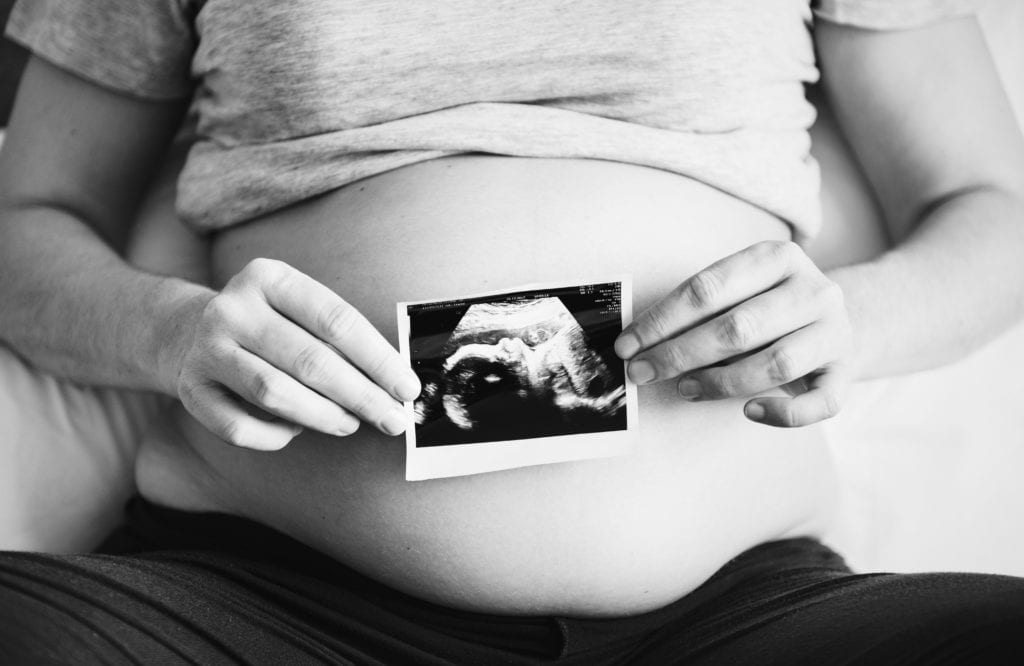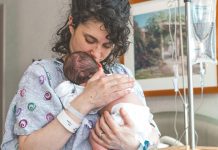 Pregnancy and birth stories are amazing. It is a true wonder what a pregnant body goes through from conception to birth: a whole human being is made from scratch. Although I have always been in awe of pregnancy, I have never actually been pregnant. My main goal so far has been ‘nurturing a career,’ so a baby was this abstract idea in an unknown future. Until one day my husband brought up the “baby” topic. We looked at dates. We spent car rides going through baby names. And then suddenly it hit me: I was not prepared for it.
Pregnancy and birth stories are amazing. It is a true wonder what a pregnant body goes through from conception to birth: a whole human being is made from scratch. Although I have always been in awe of pregnancy, I have never actually been pregnant. My main goal so far has been ‘nurturing a career,’ so a baby was this abstract idea in an unknown future. Until one day my husband brought up the “baby” topic. We looked at dates. We spent car rides going through baby names. And then suddenly it hit me: I was not prepared for it.
The first thing I hear from everyone is, of course: “there’s never a good time.” Maybe. But listening to people tell me to relax and go with the flow only made me more anxious. So I started my lists. And reading. There’s something about information, and knowing where to find it, that is very soothing to me. Also, spreadsheets. Ah! After months of intensive studying, I am convinced that “feeling prepared” will never happen, but having access to quality information did provide me with a greater sense of calm. Here is where I started preparing for pregnancy:
1) Fertility Awareness Method (FAM)
Honestly, I had no idea there were so many things I didn’t know about how my body actually works. Although the title can sound misleading, “Taking Charge of your Fertility” (by Toni Weschler), is a treatise on to how to interpret the stories our bodies tell us with each cycle. Did I mention there is a chart involved?! Yes. Tracking different variables in my cycles helped me see it as a health indicator rather than a burden.
2) Genetic testing
Genetic testing still sounds very sci-fi to me… Anyway. There is one item that I felt like I needed to test “just in case.” Women with certain MTHFR gene variations cannot process B vitamins efficiently, which can result in a variety of issues, from having a hard time conceiving, to preeclampsia, or neural tube defects in the developing baby… Your Health Care Provider might be able to test it, and it might be covered by your health insurance. The other alternative is to test independently, my suggestion is 23andme. This study published on PNAS found that supplementing has the potential to prevent these issues. Here is a post by Nicole Jardim explaining the different variations in a very clear way. Which brings me to the next item, prenatal multivitamins.
3) Prenatal Multivitamin
There are SO MANY options. SO. MANY. Nutrition is very complex, and there’s really no “one size fits all”. Nonetheless, without consulting a nutritionist I was able to narrow down my search. My process involved:
– Figuring out the macros and micros in what I normally eat (I used the Wholesome app)
– Creating a spreadsheet to compare adequate pregnancy intake versus different prenatal formulas
– Understanding vitamin interactions (Linus Pauling Institute is a wonderful resource)
– Third-party certified (Good resources: National Sanitary Foundation [NSF]; LabDoor)
4) Nutrition
Changing your diet is hard. Not only because junk food is delicious, but also because it’s a social activity. On top of that, there’s so much confusing information, that I feel like just eating pizza all day, all night, and calling it good. Then you add pregnancy to nutrition and no one can agree. I did find one book that was very illuminating and had tons of scientific research backing it up: “Real food for Pregnancy“, by Lily Nichols. Reading it definitely made me eat more avocados.
5) Detox
Modernity is awesome in so many ways, but it also exposes us to a lot of stuff that is toxic to our bodies. The liver is a superstar that works relentlessly to keep us out of harm’s way, but if we constantly feed it more toxins, things can start to go astray. Creating a human from scratch is no joke, so I want to give my body the best opportunity I can to be at an efficient status. There are two main courses of action: minimize exposure and detoxify. “Real Food for Pregnancy” goes through items that should be avoided, and I have found it to be a fantastic resource, to begin with. From extensively listening to Rhonda Patrick, Ph.D., I tweaked my routine to include: exercise every day, sauna 3 times per week (sauna is not recommended at or after ovulation / if you are pregnant), doing breathing exercises in the morning or when I start to feel anxious, and 5 minutes meditation.
6) Good sleep
Recently, I became aware of the research of Matthew Walker, Ph.D. on sleep. His book, “Why we sleep,” is remarkable, and makes the case for why sleep is fundamental to our health. In fact, Walker calls it nature’s free healthcare. It might seem sometimes that sleep is a luxury, but it isn’t: sleep is a bare necessity, and there is no way to make up for lost sleep. My efforts to create a sleep routine included reducing or eliminating light sources after sunset, banning TV from pre-sleep, taking a hot shower right before bed, wearing a sleep mask to sleep, and not sleeping on a full stomach. It took time to get my body used to sleeping and waking at regular times, but it made a world of difference.


















